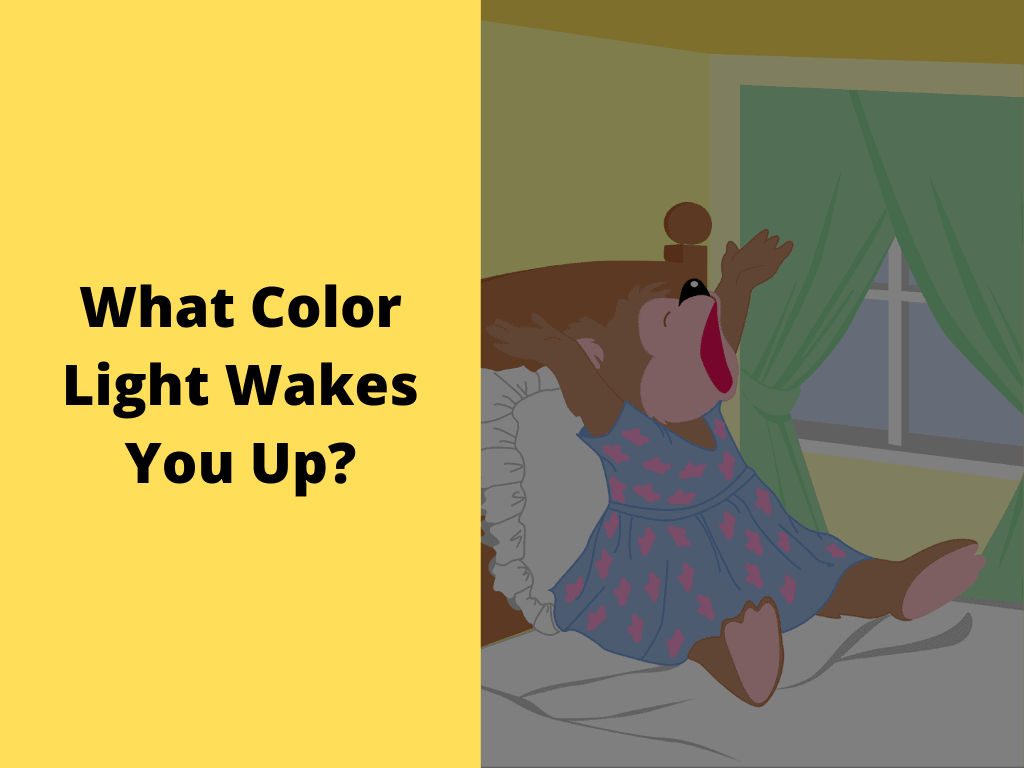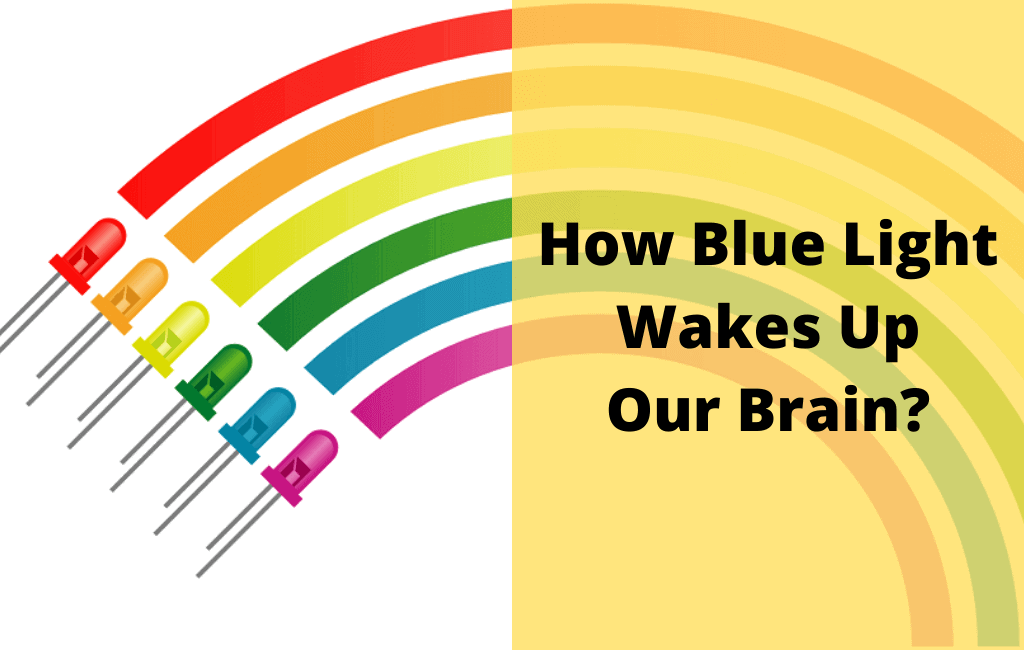Do you feel tired in the morning and have problems with morning alertness?
Well, there is good news for you. The light color that wakes you up best is the blue color.
A KAIST (The Korea Advanced Institute of Science and Technology ) research team suggested that a blue-enriched LED light can dramatically help people overcome morning drowsiness.
The team at KAIST conducted an experiment with 15 university students. They reviewed whether an hour of morning light exposure with different chromaticity would affect their physiological and subjective responses differently. The decline of melatonin levels was significantly higher after the exposure to blue-enriched white light in comparison with warm white light.

On the flip side, when you are exposed to blue light at night, you are going to have trouble achieving deep sleep because the light restrains melatonin secretion. This also means that you should avoid blue light before bedtime if you want to fall asleep fast.
Why does blue light color make you more alert?
But what is it with the blue light that wakes you up and how exactly does blue light wake you up are still questions that most people don’t have a clear answer to.
Blue light, a short-wavelength light, has been singled out as more significantly disruptive to sleep than other colors on the light spectrum. Research has shown blue light delays the release of the sleep hormone melatonin and it also disrupts the circadian rhythm.
When blue light enters our eyes, it stimulates cells containing melanopsin at the back of our retina. These cells then signal to your brain that it is daytime. Your brain then responds by changing body functions to promote wakefulness by reducing melatonin secretion, constricting the pupils, and developing daytime hormones such as cortisol.
How blue light wakes up our brain?
Scientists have carried out many studies on the effects of Melanopsin on the brain. When you are exposed to blue light, you don´t only wake up better but also help your cognition too.

There is a study by a Belgium research institute to see the role of Melanopsin in our brain’s cognition. MRI scans were done on volunteer’s brains, while they performed a memory task, whilst being exposed to blue or green light. The regions of the brain that were more involved with memory were more active when exposed to blue light.
This shows us that exposure to natural blue light or artificial blue light in the morning can help wake our minds by improving cognition and memory.
Where do you get blue light from?
LED light bulbs, as well as digital gadgets including smartphones, tablets, and computers, emit high doses of blue light. So it can actually be a good thing to take a look at your phone when you’re waking up.
You can also try to install bluish lights in the rooms where you spend the most time in the morning like the kitchen, bedroom, and bathroom.
Benefits of blue light
- If you’re exposed to blue light during the day you will feel less sleepy.
- You will have better reaction times, a higher level of alertness, your attention span will be better too.
- You will get things done much faster.
- It can elevate your mood too.
- Too little exposure to sunlight in children could affect the growth and development of the eyes and vision. Some studies show a deficiency in blue light exposure could contribute to the current increase in nearsightedness.
- Lesions caused by acne can improve when exposing only particular parts of the skin to blue light under controlled conditions. To take advantage of the effects that blue light has on your body, you can expose your skin or your eyes to an adequate source of blue light (a special LED light lamp).
- Bright light therapy is recommended to treat seasonal affective depression(SAD).
Conclusion
These results suggest that blue light pushes alertness and reduce sleepiness in ways that are detrimental to sleep at night but can be helpful during waking hours, in improving daytime performance and lessening daytime fatigue. What’s more positive about this boost in daytime sharpness and reduction in sleepiness is that it can really help improve sleep at bedtime.
Related Posts
